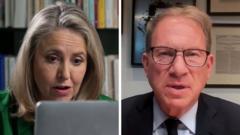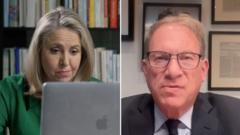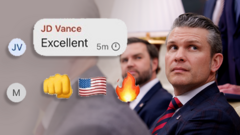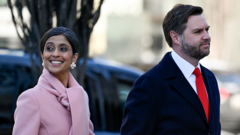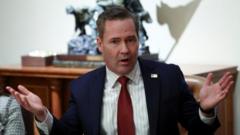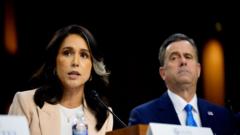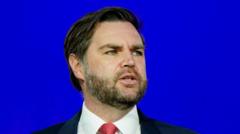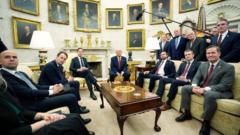A Signal group chat that included high-ranking U.S. officials discussing military strategy against the Houthi rebels in Yemen was inadvertently shared with journalist Jeffrey Goldberg. The White House confirmed the authenticity of the chat while officials debated air strikes launching shortly after the communication occurred.
Leaked Group Chat Reveals U.S. Strike Plans Against Houthis
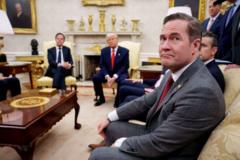
Leaked Group Chat Reveals U.S. Strike Plans Against Houthis
A journalist is inadvertently included in a sensitive chat among U.S. officials discussing military action against Yemen's Houthi rebels.
In a stunning turn of events, a group chat created on the messaging platform Signal involving top U.S. national security officials has been exposed, revealing discussions about a military strike against the Houthi rebel group in Yemen. The incident came to light when Jeffrey Goldberg, editor-in-chief of The Atlantic, was inadvertently added to the chat, which included well-known figures such as National Security Adviser Michael Waltz and Vice-President JD Vance.
Brian Hughes, a spokesperson for the National Security Council, confirmed to the BBC the authenticity of the message thread and stated that an investigation is ongoing to determine how Goldberg's number was mistakenly included. He pointed to the chat as an example of "deep and thoughtful policy coordination" among senior officials.
On March 15, a decisive series of air strikes were executed by the U.S., targeting the Houthis after the conflict escalated. Just days before the strikes, Goldberg received a connection request from an account claiming to be Waltz, leading to his addition to the chat titled "Houthi PC small group." In addition to Vance, other eminent figures such as the Defense Secretary Pete Hegseth and CIA Director John Ratcliffe were part of the conversation.
During the discussion, the account alleged to be Vance expressed hesitation about the timing of the strikes and the potential economic fallout, stating there could be "a moderate to severe spike in oil prices." Vance's spokesman later asserted that the Vice-President fully backs the administration's foreign policy and that he and Trump had unified discussions regarding the matter.
Despite initial skepticism, Goldberg followed the chat's developing communication throughout the day of the strike, later correlating it with reports of explosions occurring in Yemen's capital, Sanaa. Concurrently, Trump touted the air strikes on social media, declaring the Houthis to be backed by Iran, while emphasizing violence and terrorism's toll on safety and finances.
As U.S. officials appeared on television reinforcing their strategy, Waltz stated, "We just hit them with overwhelming force and put Iran on notice that enough is enough," further discussing Europe's obligation to financially support U.S. protection of vital shipping routes.
The ramifications of the strike and the unexpected leak of sensitive communications underscore the critical and sometimes unpredictable landscape of international relations and military action.

